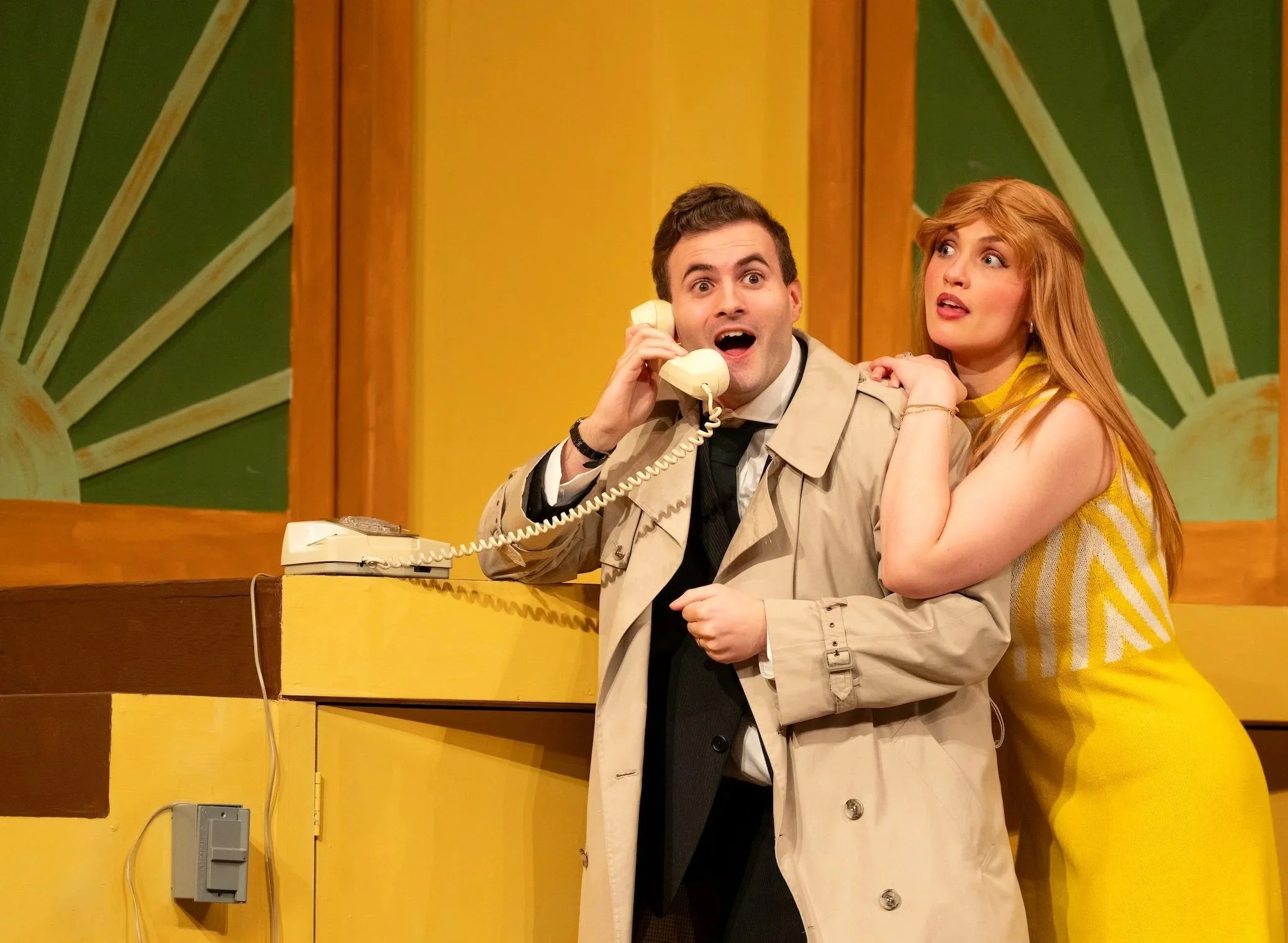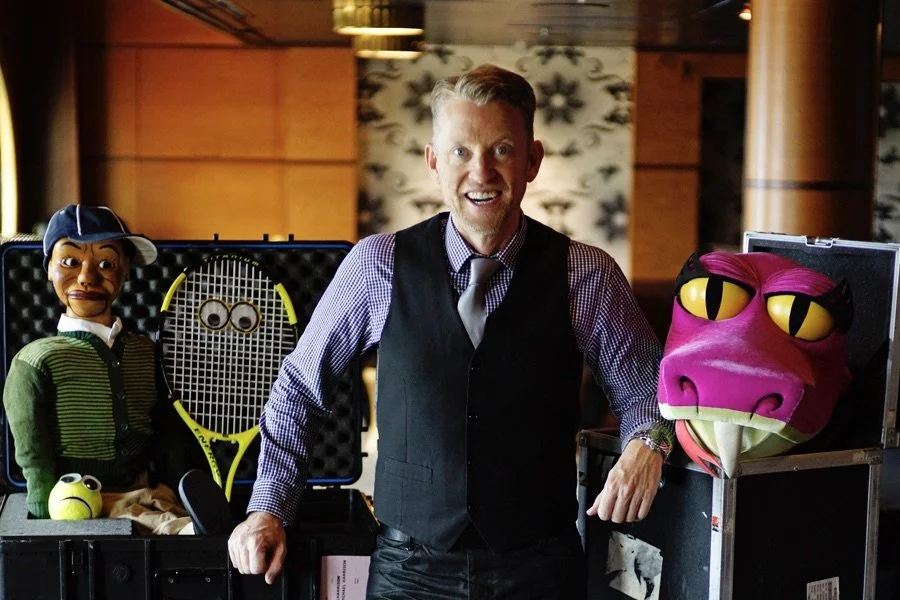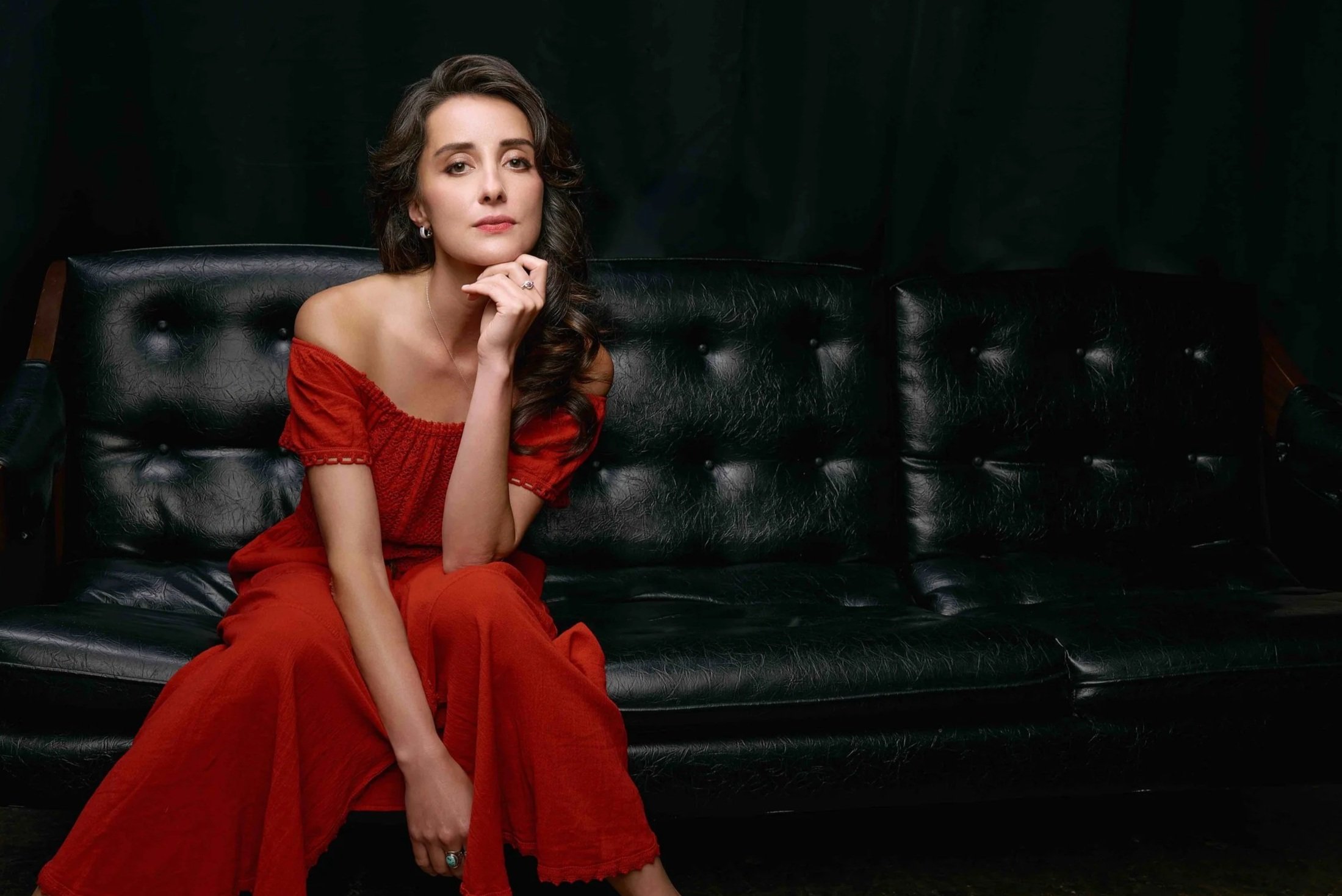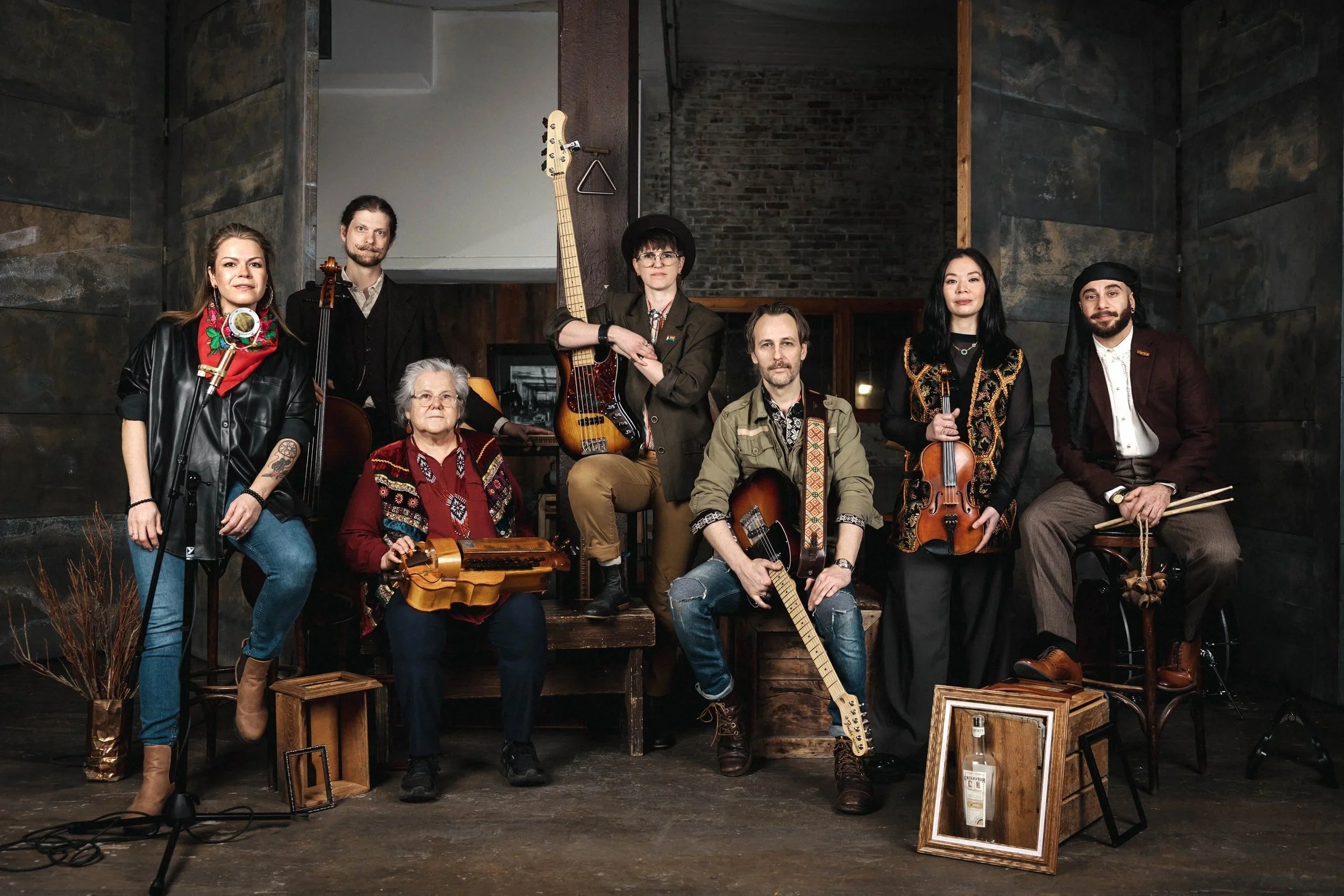Theatre review: Strong acting helps Mx challenge audiences in wildly inventive ways
In a heightened, dreamlike talkshow, two forces struggle for a mixed-race character’s “soul”
Alisha Davidson and Lili Robinson in Mx. Photo by Christache Ross.
The Cultch streams Mx to February 21 at noon, and on February 27 at 5 pm with ASL
YOU HAVE another chance to catch the thought-provoking Mx Sunday at noon—a show that packages timely ideas around identity in a wildly inventive world.
Mx’s defining strength is the way playwright and performer Lili Robinson sets a deeply personal search for where they fit in amid a surreal talk show—one that melds pop culture with dreamlike elements and Afro-Caribbean folklore. And that approach translates well in the live-filmed format.
Ariel Slack’s set feels a little “Through the Looking Glass” by way of Salvador Dali’s chessboard fantasies, with a black-and-white checkered floor and a beaded web that’s a nod to the African spider-trickster Anansi. Indeed, the first person we meet is our “talk show host” Mz. Nancy, the fiercely engaging Alisha Davidson in brilliant-red batik headdress and outfit, holding court on a red-leather armchair.
The setup is that her talk show allows one guest each evening to reconnect with their African ancestors. The show introduces its most resonant concept: Mz. Nancy welcomes “diasporic orphans”—people like Max (Robinson), her guest during this show. The term acknowledges that today’s struggles with Black or mixed identity date inescapably back to the slave trade, which scattered people across continents and disconnected them from their ancestors. “You end up with these orphans, people who couldn’t tell you who they are,” Mz. Nancy says in some of the script’s strongest passages, and then ties the issue meaningfully to Indigenous rights: “Some of us get our land stolen. Some of us get stolen from our land.”
Robinson’s shy Max (or “Mx”) gently voices the struggles of being mixed race and nonbinary: of not being raised with Black mentors, of the wakeup call of the murders of Black people by police, and of questions about how much claim Max has to their Black side.
Robinson makes the risky but ultimately successful choice to portray the character through an almost Chaplin-esque physical language. The approach suits the stylized atmosphere and reaches us in ways that feel different from a straightforward confessional.
There’s a third character who fights for Max’s “soul”: Samantha (Emily Jane King, in another of the show’s strong performances). Dressed in a ‘50s cocktail dress and appearing out of the dark to offer Max croissants and picnics, she’s one of the most subversive elements in the play. Samantha is the voice of white liberalism, the one that calls to Max’s white side. Samantha talks about “such important conversations coming into the spotlight”, and later says, “I do wonder about the consequences of focusing on so much negativity.” Here’s the challenge: on the surface, she’s saying all the “right” things, but these are words that actually work to silence Max, or whitewash difficult questions around race and identity that are happening right now.
The TV-show-fantasy format lends itself well to the Cultch’s livestream, allowing for one of the virtual characters, a “Map app” (voiced by Ivy Charles), to appear as a Siri-like emoji giving Max directions, as well as live-chat elements. It also provides an opportunity for its cast to address and challenge the way we are watching all of this: at one point, on the urging of Mz. Nancy, Max looks directly down the lens of the camera at the viewer and says, “You have no right to my grief” and “This isn’t to make you feel good.”
The production becomes a little gimmicky in the final act, devolving into glitching, handheld chaos and “technical difficulties” as Mz. Nancy and Samantha battle it out.
But it all resolves in an affecting finale whose one-on-one intimacy—talking directly to us through a phone—might not be possible without livestream. Suffice it to say that Max is left alone to leave the theatre and walk home, addressing us personally. “Would you mind staying with me a bit?” Max asks. “You were there too, right? You saw it?” Robinson is not offering us any easy answers to complex questions. But the playwright has made the right choice to end with one person connecting authentically with another—even if it’s through the virtual world of livestream.
Mx is asking us to open our eyes to see and hear things differently. And in their gently persuasive way, they're giving voice to revolutionary ideas--not just about the world inside of theatre, but far outside it as well.













